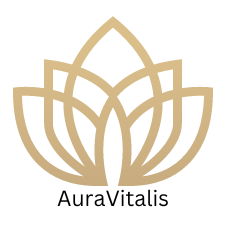
Journaling is more than just a pastime; it’s a life-changing practice. If you’ve ever felt overwhelmed, stuck, or uncertain, this simple habit can become your most powerful tool for growth and healing. From reducing stress to unlocking hidden parts of yourself, the health benefits of journaling are surprisingly vast—and incredibly effective. Let’s explore how putting pen to paper can transform your well-being and help you live a more balanced and intentional life.
1. Reducing Stress: A Path to Calm
Stress is a fact of life, but journaling offers an escape hatch from its grip. When you pour your thoughts onto paper, you’re not just venting—you’re decluttering your mind. Writing about what’s troubling you can provide clarity and create mental space to process your challenges.
Personal Anecdote:
I remember a particularly chaotic week where everything seemed to go wrong. Deadlines loomed, my car broke down, and family commitments piled up. My stress levels skyrocketed, and I didn’t know where to turn. On a whim, I grabbed a notebook and began scribbling every frustration I felt. Ten minutes later, I noticed something profound: my shoulders had relaxed, and my breathing slowed. The act of writing helped me let go of the tension I was holding.
Journaling can even mimic the therapeutic effects of mindfulness. Studies show that expressive writing lowers cortisol levels, helping the body cope with stress more effectively. Whether it’s a quick brain dump or a reflective entry, this practice offers immediate relief and long-term stress management.
2. Providing a Way to Process Emotions
Our emotions are often complex, and journaling helps untangle them. Writing provides a safe, non-judgmental space to explore what you’re feeling and why. This is especially helpful when emotions feel overwhelming or difficult to articulate.
How to Start:
- Try “free-writing” about your day. What stood out emotionally?
- Use prompts like, “What am I feeling right now?” or “Why might I feel this way?”
Why It Works:
Journaling acts as a mirror, reflecting your inner world. By acknowledging your emotions, you reduce their intensity and begin to understand their root causes. Over time, this builds emotional intelligence and resilience.
Personal Tip:
When I’m feeling frustrated or sad, I grab my journal and write letters I’ll never send. Sometimes, it’s to myself; other times, it’s to the situation or person involved. It’s incredibly freeing and often leads to an “aha” moment that shifts my perspective.
3. Deepening Self-Discovery
Do you ever feel like you’re running on autopilot, disconnected from your true self? Journaling is like having a conversation with your soul. By regularly reflecting on your thoughts, dreams, and values, you gain insight into who you really are.
Ways to Explore Yourself Through Writing:
- Use journaling prompts such as:
- “What makes me feel alive?”
- “What are my core values?”
- Keep a gratitude journal to notice what lights you up.
- Reflect on your successes and failures to understand patterns in your behavior.
Personal Anecdote:
A few years ago, I felt stuck in a career that didn’t align with my passions. Journaling helped me reconnect with what mattered most to me. Writing about my childhood dreams and current frustrations revealed my desire to help others through health and wellness. That realization gave me the courage to pivot, and now, I get to write pieces like this!
By journaling, you deepen your understanding of your strengths, challenges, and desires. This self-awareness makes it easier to navigate life with intention and authenticity.
4. Helping You Figure Out Your Next Steps
Life is full of crossroads, and journaling can be your compass. When you’re unsure about what to do next, writing can clarify your options and guide you toward the best path forward.
Actionable Tips for Using Journaling as a Decision-Making Tool:
- Create a pros and cons list for difficult choices.
- Write about your fears, hopes, and potential outcomes.
- Ask yourself, “What would I do if I weren’t afraid?”
My Experience:
When I was deciding whether to move to a new city, I felt paralyzed by the possibilities. Journaling allowed me to weigh the practicalities while also tuning into my intuition. I wrote letters to my future self, envisioning life in both scenarios, and the answer became clear: I needed to take the leap.
Journaling doesn’t just help you make decisions—it empowers you to trust yourself in the process.
How to Make Journaling a Habit
Now that you’re inspired, how do you start journaling?
- Pick a Time: Morning or evening works best for reflection.
- Set the Scene: Find a quiet, comfortable space.
- Start Small: Aim for 5-10 minutes at first.
- Use Prompts: There’s no need to stare at a blank page!
- Be Kind to Yourself: No one will read your journal but you. Forget grammar and just write.
Final Thoughts
The health benefits of journaling go far beyond stress relief and self-expression. This practice is a powerful ally for your mental and emotional well-being, guiding you through challenges and helping you grow. Whether you’re processing emotions, exploring your identity, or mapping out your future, journaling is a tool that keeps giving.
So grab a notebook, find a quiet corner, and start writing. Your future self will thank you.
